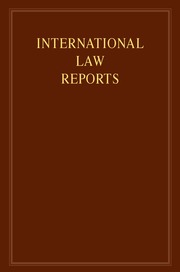No CrossRef data available.
Article contents
Poma Poma v. Peru
Published online by Cambridge University Press: 01 June 2021
Abstract
Human rights — Tribunals — United Nations Human Rights Committee — Minority rights — Indigenous peoples — Members of indigenous community constituting a minority — Author member of ethnic minority — Right to enjoy own culture — Indigenous peoples — Indigenous community land in the Andes in Peru — State project to divert water from Andes to provide water for city of Tacna — Community land in the Andes — Degradation of author’s land — Death of livestock — State activities — Whether substantially compromising or interfering with culturally significant economic activities of a minority — Right of minority to participate in decision-making process — Proportionality — Right to effective remedy — Admissibility of author’s complaint — Article 5(2)(a) of Optional Protocol to International Covenant on Civil and Political Rights, 1966 — Whether same matter being examined under another international procedure — Whether referral to Commission on Human Rights constituting another international procedure within meaning of Article 5(2)(a) — Whether State Party violating its obligations under Articles 27 and 2(3)(a) of Covenant
Environment — Alleged damage to ecosystem — Indigenous community land — Degradation of author’s land due to water diversion operations — Indigenous peoples — Rights of minorities — Right to enjoy own culture — Traditional customs — Whether State Party violating its obligations under Article 27 of International Covenant on Civil and Political Rights, 1966
Damages — Reparation — Reparation commensurate to harm sustained — Obligation on State to provide authors of complaint with effective remedy — Article 2(3)(a) of International Covenant on Civil and Political Rights, 1966 — United Nations Human Rights Committee
Keywords
- Type
- Case Report
- Information
- Copyright
- © Cambridge University Press 2021


